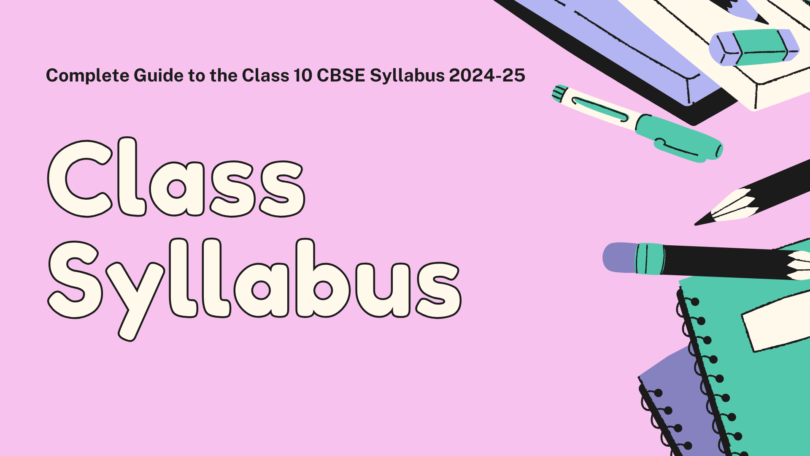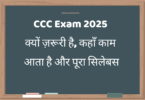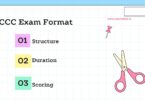Creating a comprehensive 10,000-word blog on the Class 10 CBSE Syllabus for the 2024-25 academic year, as available on the official CBSE website, requires structuring the content into detailed sections for each subject. Here’s an outline of the blog structure:
Complete Guide to the Class 10 CBSE Syllabus 2024-25
The Central Board of Secondary Education (CBSE) plays a vital role in shaping the academic framework of millions of students across India. This blog provides an in-depth analysis of the Class 10 CBSE Syllabus for 2024-25, helping students and educators stay informed.
Table of Contents
1.Overview of the CBSE Class 10 Syllabus 2024-25
2.Subject-Wise Breakdown of the Syllabus
•Mathematics
•Science
•Social Science
•English
•Hindi
•Information Technology
•Other Subjects
3.Changes and Updates in the Syllabus
4.Key Preparation Tips for Class 10 Board Exams
5.Conclusion
1. Overview of the CBSE Class 10 Syllabus 2024-25
The Class 10 syllabus is meticulously designed to provide a robust foundation for higher education. For the academic session 2024-25, the CBSE board has introduced slight modifications to align with the National Education Policy (NEP). The syllabus emphasizes conceptual understanding, analytical skills, and application-based learning.
CBSE releases the syllabus on its official website, offering students detailed guidelines on topics, chapters, and exam patterns. You can visit the official CBSE website for regular updates.
2. Subject-Wise Breakdown of the Syllabus
A. Mathematics
Mathematics is a critical subject, and the syllabus for Class 10 is divided into two streams:
•Standard Mathematics (for students aiming for technical or commerce fields)
•Basic Mathematics (for students not pursuing mathematics at higher levels).
Key Units:
1.Number Systems: Real Numbers.
2.Algebra: Polynomials, Pair of Linear Equations in Two Variables, Quadratic Equations, Arithmetic Progressions.
3.Geometry: Triangles, Circles, Constructions.
4.Trigonometry: Applications of Trigonometry.
5.Mensuration: Surface Areas and Volumes.
6.Statistics and Probability: Mean, Median, Mode, Probability.
Weightage:
•Theory: 80 marks
•Internal Assessment: 20 marks
B. Science
Science encompasses Physics, Chemistry, and Biology, each aimed at providing practical and theoretical knowledge.
Key Topics:
1.Physics: Light, Electricity, Magnetic Effects of Electric Current.
2.Chemistry: Chemical Reactions, Acids, Bases and Salts, Carbon Compounds.
3.Biology: Life Processes, Reproduction, Heredity and Evolution.
Practical Work:
Students must complete prescribed experiments to earn practical marks.
C. Social Science
Social Science is divided into History, Geography, Political Science, and Economics.
Key Units:
1.History: The Rise of Nationalism in Europe, The Making of a Global World.
2.Geography: Resources and Development, Water Resources, Agriculture.
3.Political Science: Power Sharing, Federalism, Democracy and Diversity.
4.Economics: Development, Sectors of the Indian Economy, Money and Credit.
Exam Pattern:
•Theory: 80 marks
•Internal Assessment: 20 marks
D. English
English is categorized into two sections:
1.English Language and Literature: Focuses on reading, writing, grammar, and literature.
Key Textbooks:
•First Flight (Prose & Poetry)
•Footprints Without Feet (Supplementary Reader)
E. Hindi
Hindi has two courses: Hindi A and Hindi B.
Key Areas:
•Literature: Poems, Prose, and Supplementary Texts
•Grammar: Sentence Formation, Tenses, Vocabulary
F. Information Technology
This subject focuses on skills in coding, data handling, and technology usage.
3. Changes and Updates in the Syllabus
For the 2024-25 session, CBSE has made changes to ensure students are better equipped for future challenges. These include:
•Reduction in certain topics to ease the syllabus load.
•Greater emphasis on critical thinking.
•Introduction of skill-based questions in exams.
4. Key Preparation Tips for Class 10 Board Exams
1.Understand the Syllabus: Begin by thoroughly reviewing the syllabus.
2.Create a Study Schedule: Allocate time for each subject based on weightage.
3.Practice Past Papers: Regular practice of sample papers builds confidence.
4.Focus on NCERT Books: Stick to NCERT textbooks as the primary source.
5. Conclusion
The Class 10 CBSE syllabus for 2024-25 is a roadmap for students to excel academically. Staying updated with the syllabus, managing time effectively, and maintaining consistent effort can lead to success.
For detailed syllabus documents, visit the official CBSE website.
Would you like additional focus on specific sections or deeper elaboration on any subject? Let me know!







